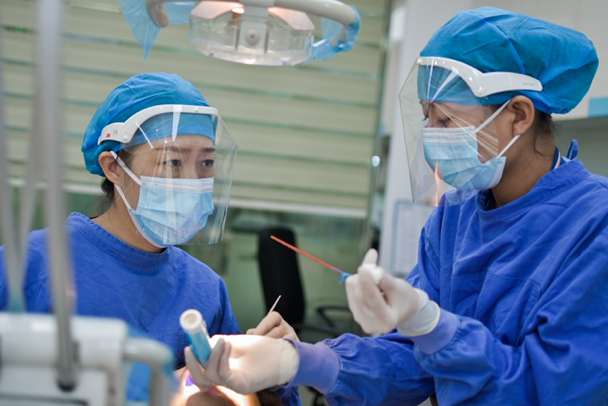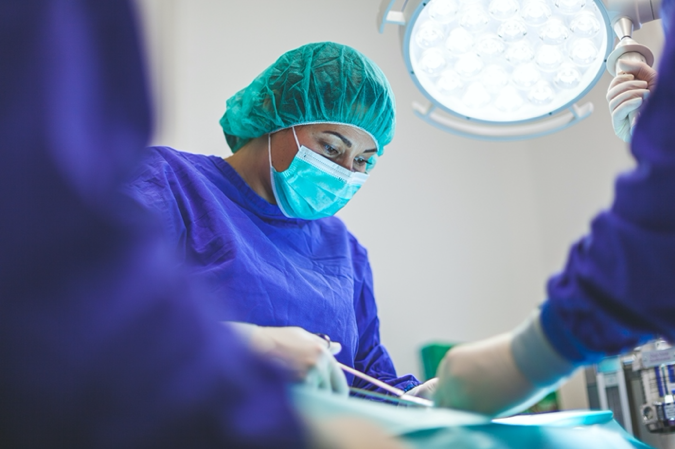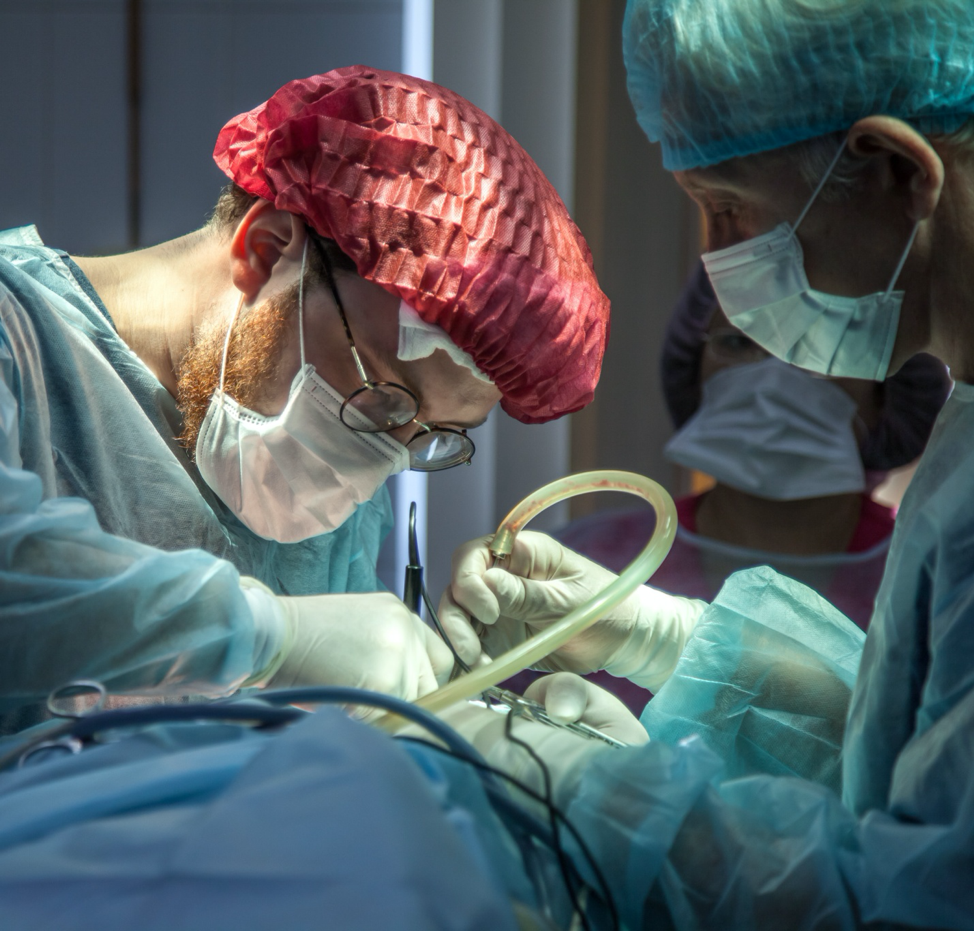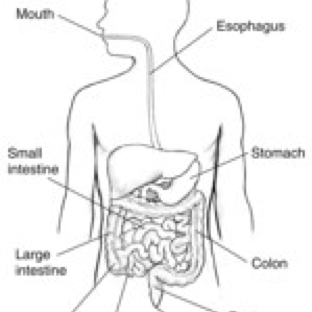CALL TODAY 646-846-1136 | EMAIL
Surgical Experts Dedicated to Improving Lives
At Lenox Hill Minimally Invasive Surgery PLLC, Dr. Valery Dronsky and his staff of medical professionals provide compassionate care with the highest ethical & professional standards. In our state of the art facility, we offer surgical services using only the most cutting edge and current procedures and treatments. We specialize in general surgery, including extensive experience in performing hernia repair surgery. Our expertise is in minimally invasive surgery and robotic surgery. Minimally invasive and robotic surgery often allow patients to experience easier recovery than traditional open surgery. They also allow for more precise and less traumatic surgery. When robotic and minimally invasive surgery is not an option, we are also skilled and experienced in traditional open surgical procedures.
Dr. Dronsky is an experienced and highly skilled surgeon having undergone extensive training in school, residency and fellowships. He practices medicine with ethical behavior, compassion and superb bedside manner. In the operating room he exhibits precision mechanical abilities, analytical thinking and the ability to visualize tissue in three dimensions. These innate and learned skills allow Dr. Dronsky to be one of the most dexterous and skilled professionals in New York City and the Country.
Call us: 646-846-1136
PATIENT TESTIMONIALS
Recent Awards
We are honored and deeply appreciative to have consistently received prestigious awards and recognition year after year, establishing us as one of New York’s foremost hospitals for a wide range of general surgeries, safety measures, specialized procedures, and overall excellence in healthcare. At Lenox Hill Minimally Invasive Surgery, our unwavering commitment lies in delivering exceptional care and unwavering support to our patients, guaranteeing their safety and successful recovery throughout their entire surgical experience.
Hospital Quality Awards
 America’s 50 Best Hospitals Award™ (2023, 2022)
America’s 50 Best Hospitals Award™ (2023, 2022)
Top 1% in the nation for providing the highest clinical quality year over year.

America’s 100 Best Hospitals Award™ (2021)
Top 2% in the nation for consistently delivering clinical quality year over year.

America’s 250 Best Hospitals Award™ (2023, 2022, 2021)
Top 5% in the nation for consistently delivering clinical quality.

Patient Safety Excellence Award™ (2023, 2022)
Top in the nation for providing excellence in patient safety by preventing infections, medical errors, and other preventable complications.
Specialty Clinical Quality Awards

America’s 100 Best Hospitals for Cardiac Care Award™ (2023, 2022, 2021, 2020, 2019)
Superior clinical outcomes in heart bypass surgery, coronary interventional procedures, heart attack treatment, heart failure treatment, and heart valve surgery.

America’s 100 Best Hospitals for Coronary Intervention Award™ (2023, 2022, 2021, 2020, 2019)
Superior clinical outcomes in coronary intervention procedures (angioplasty with stent).

America’s 100 Best Hospitals for Prostate Surgery Award™ (2023, 2022, 2021)
Superior clinical outcomes in prostate removal surgery and transurethral resection of the prostate.
Click to see all of our Healthgrades best doctors awards
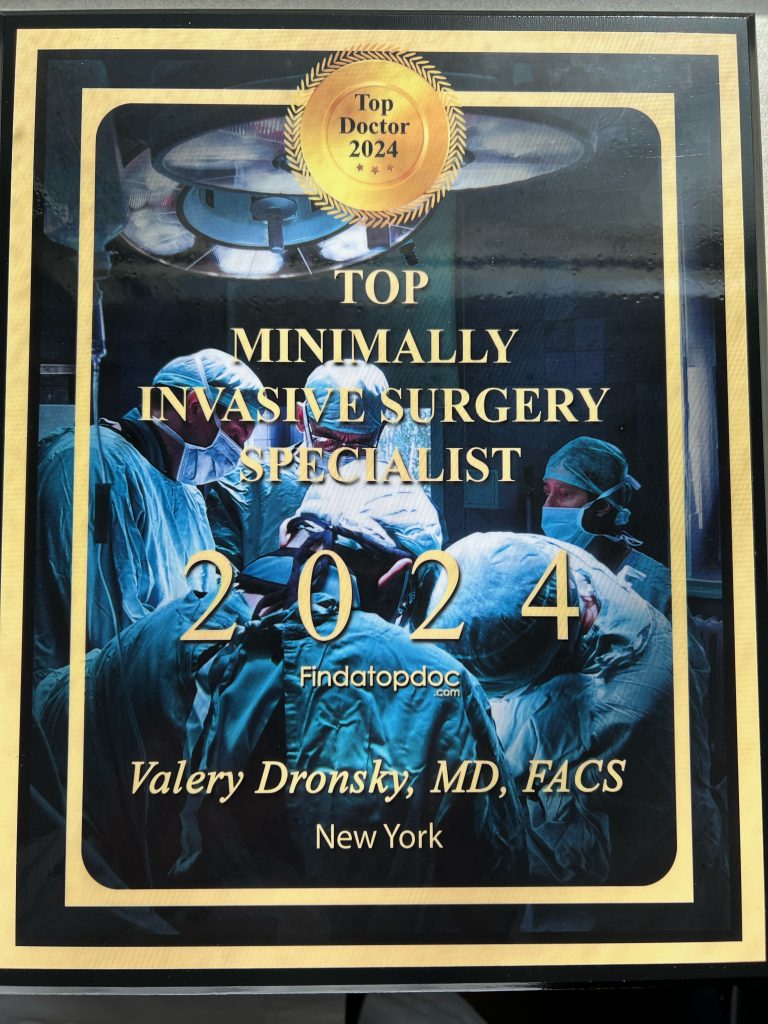
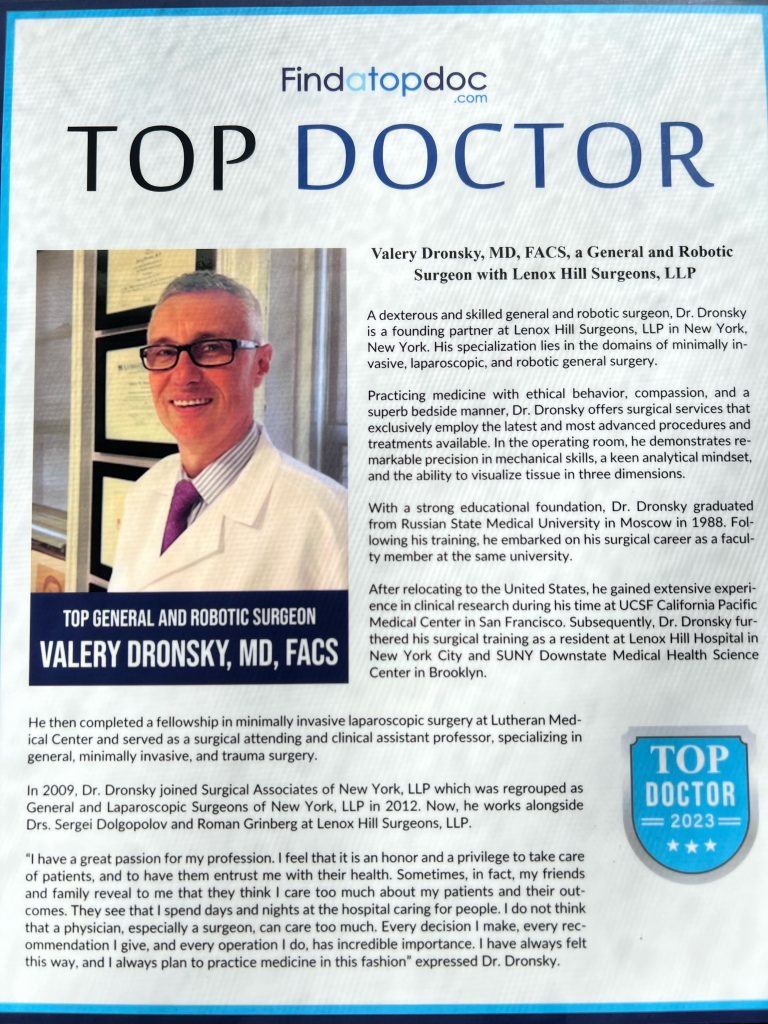


Visit our main website at www.LenoxHillMinimallyInvasiveSurgery.com
Blog Posts are Below:
Category Archives: Esophagus Surgery
Esophagus Surgery: Addressing Esophageal Conditions and Surgical Treatments
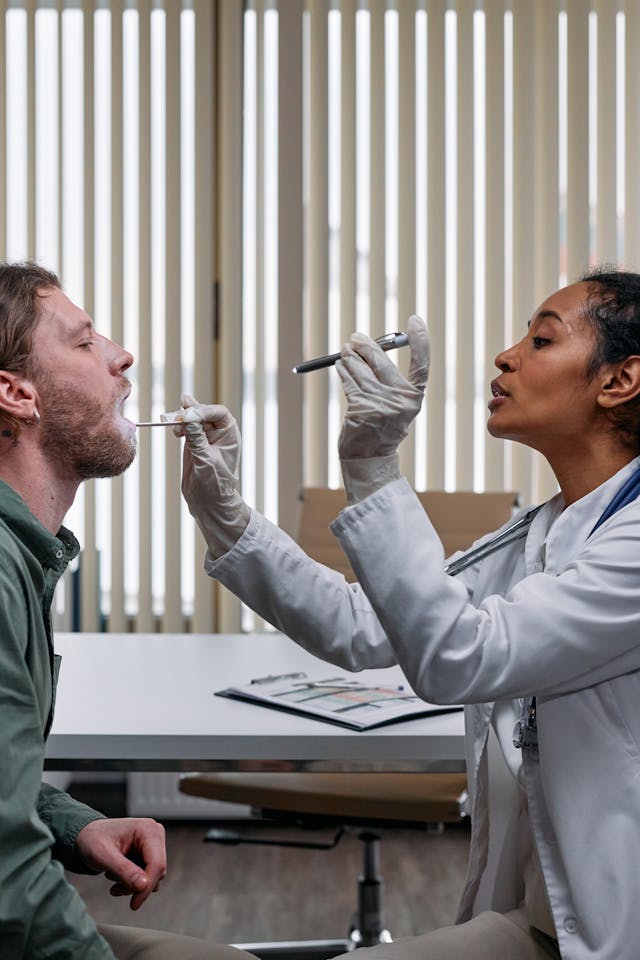 What are the major esophageal conditions and surgical treatments? The esophagus, a vital part of the digestive system, is a muscular tube that connects the throat to the stomach. It plays a crucial role in the movement of food and liquids from the mouth to the stomach for digestion. However, several conditions can affect the esophagus, leading to discomfort, difficulty swallowing, and more severe health complications. In some cases, surgery may be required to treat these conditions and restore proper function.
What are the major esophageal conditions and surgical treatments? The esophagus, a vital part of the digestive system, is a muscular tube that connects the throat to the stomach. It plays a crucial role in the movement of food and liquids from the mouth to the stomach for digestion. However, several conditions can affect the esophagus, leading to discomfort, difficulty swallowing, and more severe health complications. In some cases, surgery may be required to treat these conditions and restore proper function.
So let’s now explore the various esophageal conditions that may require surgical intervention, the available surgical treatments, and what patients can expect during recovery.
Common Esophageal Conditions Requiring Surgical Treatments
Several esophageal disorders may necessitate surgery, either because other treatments have failed or because the condition poses a significant health risk. Here are some of the most common conditions that could lead to surgical intervention:
1. Gastroesophageal Reflux Disease (GERD)
GERD occurs when stomach acid frequently flows back into the esophagus, irritating the lining. This acid reflux can cause heartburn, regurgitation, and even damage to the esophagus over time. In severe cases where lifestyle changes and medication do not provide relief, surgery may be recommended.
The most common surgical procedure for GERD is fundoplication. During this procedure, the upper part of the stomach is wrapped around the lower esophagus to strengthen the esophageal sphincter, preventing acid from flowing back into the esophagus.
2. Achalasia
Achalasia is a rare disorder in which the esophagus loses its ability to move food toward the stomach due to damage to the nerves in the esophagus. The lower esophageal sphincter (LES), a muscle that allows food to enter the stomach, fails to relax properly, causing difficulty swallowing and food buildup.
Surgery for achalasia typically involves a Heller myotomy, a procedure in which the surgeon cuts the muscle at the lower esophagus to help it relax and open more easily. Sometimes, this surgery is performed in conjunction with a partial fundoplication to prevent acid reflux after the procedure.
3. Esophageal Cancer
Esophageal cancer, though less common, is a serious condition that often requires surgery as part of the treatment plan. Cancerous tumors in the esophagus can obstruct the passage of food and cause significant health complications.
The primary surgical procedure for esophageal cancer is esophagectomy, in which part or all of the esophagus is removed, and the stomach is pulled up to connect with the remaining portion of the esophagus or pharynx. In some cases, a portion of the intestine may be used to replace the removed esophagus. Esophagectomy is a complex surgery that is often accompanied by chemotherapy or radiation therapy as part of the cancer treatment plan.
4. Barrett’s Esophagus
Barrett’s esophagus is a condition where the lining of the esophagus changes due to prolonged acid exposure from GERD. While Barrett’s esophagus itself is not cancerous, it increases the risk of developing esophageal cancer. In cases where precancerous cells (dysplasia) are present, surgery may be recommended to prevent the progression to cancer.
The surgical procedure typically performed for Barrett’s esophagus with high-grade dysplasia is endoscopic mucosal resection (EMR), where abnormal cells are removed through an endoscope. In more severe cases, an esophagectomy may be required.
Surgical Treatments for Esophageal Conditions
Depending on the condition affecting the esophagus, different surgical options may be considered. Some of the most common esophageal surgeries include:
1. Laparoscopic Fundoplication
This minimally invasive procedure is often performed to treat GERD. The surgeon makes small incisions in the abdomen and uses specialized instruments to wrap the upper part of the stomach around the esophagus. Laparoscopic fundoplication offers the advantages of smaller incisions, shorter recovery times, and less postoperative pain compared to traditional open surgery.
2. Heller Myotomy
Used to treat achalasia, Heller myotomy can be performed laparoscopically, allowing for a quicker recovery and reduced scarring. In this procedure, the surgeon cuts the muscle at the lower end of the esophagus to help relax it, improving the ability to swallow. A partial fundoplication may also be done during this surgery to prevent future acid reflux.
3. Esophagectomy
For esophageal cancer or other severe esophageal conditions, an esophagectomy may be necessary. During this procedure, part or all of the esophagus is removed. This surgery can be performed through the chest, abdomen, or a combination of both, and is typically followed by reconstructive surgery to restore the digestive pathway using either the stomach or intestine.
4. Endoscopic Mucosal Resection (EMR)
EMR is a minimally invasive procedure used to remove early-stage cancerous or precancerous tissue from the esophagus. It is performed using an endoscope, a flexible tube with a camera and surgical tools, which is passed down the esophagus. This procedure allows for the removal of abnormal tissue without the need for major surgery, reducing recovery time and risk.
Recovery After Esophageal Surgery
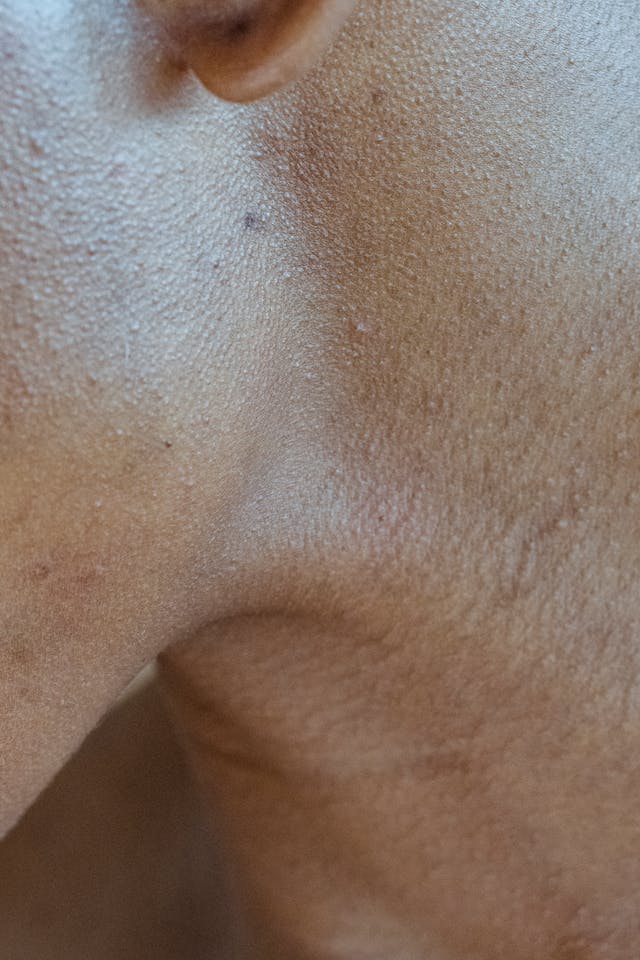 Recovery from esophageal surgery depends on the type of procedure performed and the patient’s overall health. Minimally invasive procedures like laparoscopic fundoplication or Heller myotomy typically involve shorter hospital stays, with patients often returning home within a few days. Full recovery may take several weeks, during which patients may need to follow a special diet to aid healing.
Recovery from esophageal surgery depends on the type of procedure performed and the patient’s overall health. Minimally invasive procedures like laparoscopic fundoplication or Heller myotomy typically involve shorter hospital stays, with patients often returning home within a few days. Full recovery may take several weeks, during which patients may need to follow a special diet to aid healing.
For more complex procedures like esophagectomy, recovery may take longer. Patients may require a hospital stay of several weeks, followed by months of rehabilitation. Dietary changes, physical therapy, and follow-up care are essential to ensure proper recovery and monitor for any complications.
Choosing the Right Surgeon for Esophageal Surgery
When considering esophageal surgery, it’s crucial to choose a surgeon with specialized expertise in treating esophageal conditions. Surgeons with experience in both traditional and minimally invasive techniques can offer personalized treatment plans tailored to each patient’s unique needs.
At Lenox Hill Minimally Invasive Surgery, our team is highly skilled in treating a wide range of esophageal conditions using the latest surgical advancements. Whether you’re dealing with GERD, achalasia, esophageal cancer, or another condition, our surgeons provide comprehensive care with a focus on patient safety and optimal outcomes.
For expert consultation and surgical treatment, contact Lenox Hill Minimally Invasive Surgery:
LENOX HILL MINIMALLY INVASIVE SURGERY
117 E 77th Street
Suite 1A
New York, NY 10075
646-846-1136
admin@lenoxmis.com
Visit our website for more information: https://lenoxhillminimallyinvasivesurgery.com/
The Esophagus: Common Problems & Surgery
What are the common problems and surgery of the esophagus? Esophagus refers to the tube that takes food that you put in your mouth and sends it down the digestive tract for absorption. Through peristalsis, the esophagus ensures that the food bolus travels smoothly down to your stomach, where it becomes ready for digestion. However, you can face many problems with the esophagus.
Common Problems of the Esophagus
One of the most common issues of the esophagus includes acid reflux. In acid reflux, gastric acid enters the esophagus, causing severe heartburn and disturbance. This condition is usually a side effect of other infections and medications.
One can simply treat this condition by avoiding certain medications and food that cause esophagitis. However, some severe cases of this condition can also cause complex and intense issues. Esophagus issues are also associated with swallowing issues and prolonged sore throat.
Immune-compromised people take very long to recover from esophagus problems. However, healthy people may only take a couple of days to recover from the case of acid reflux. Over the counter medicine works just as well as any other treatment concerning acid reflux. Another useful option takes shape in the form of dietary changes.
Types of Esophagus Problems
Problems with the esophagus may arise because of many reasons. However, some causes are more common than others. Hence, a person can be suffering from esophagus problems and the cause of it will determine the treatment.
Eosinophilic Esophagitis
Eosinophils are a form of white blood cells that fight diseases. These cells can sometimes over-respond when a foreign allergen enters into the throat. This type of esophagus problem is very common amongst small children. Furthermore, it is also an example of an allergic reaction and has many triggers that cause it to go into overdrive. A person facing this problem will have trouble eating food. Common triggers of this disease include:
- Milk
- Soy
- Eggs
- Wheat
- Tree nuts
- Peanuts
- Shellfish
- Pollen
The entry point of these allergens can either be from ingestion into the esophagus or the nasal region inside the nose. Regardless of where they enter from, a person can suffer from Eosinophilic Esophagitis.
Reflux Esophagitis
Reflux esophagitis is the resulting condition of another underlying condition. Gastroesophageal Reflux Disease or GERD, this condition causes an involuntary reaction inside a body. The stomach contents, along with the acids jump back into the esophagus and cause a burning sensation in the chest. The irritation in the esophagus can lead to severe consequences like inflammation and even damage.
Esophagitis Due to Drugs
Some pharmaceutical medications and drugs cause problems in the esophagus if you do not ingest them with sufficient water. Since these medications are not water-soluble, they can end up being stuck inside your throat and lead to disturbance and pain in the esophagus.
Esophagitis Due to Infections
If an infection is causing esophagus disturbance, then this condition can lead to serious consequences. Infectious esophagitis is a rare condition and an outcome of bacterial or viral infection inside the esophagus. This infection can be either fungal or even parasitic. People who have a weak immune system are vulnerable to this condition. Therefore, individuals already suffering from conditions that weaken the immune system need to be wary of this infectious disease.
Symptoms of Esophagus Problems
A person can face several symptoms when suffering from esophagus issues. This is largely due to the underlying conditions from which esophagitis manifests. Symptoms can include:
- Swallowing difficulties
- Pain while gulping and swallowing
- Sore throat
- Acid reflux
- Heartburn
- Cracked voice
- Chest pain
- Coughing
- Loss in appetite (this may be due to esophagus pain)
- Nausea
- Fever(this symptom is possible in times of viral infection)
Esophagus Surgery
A doctor usually opts for esophagus surgery when the conditions start worsening and no other treatment works. Otherwise, surgery is imminent for someone with esophagus cancer. The primary goal of the surgery is to make an incision on your throat for an entry at the esophagus tube.
Once the surgeon has clear access to the inflamed esophagus, they can operate by removing the infectious cavity or the tumor (in case of cancer) from the esophagus. There are two main techniques for performing this type of surgery. Open surgery and minimally invasive surgery (laparoscopic).
In open surgery, the surgeon makes a big incision on the throat, chest, or abdomen region. The placement for the incision depends on where the damage takes place, along the esophagus tube. However, doctors make small incisions to perform minimally invasive surgery. For this surgery, the incisions have to be big enough for the laparoscope to enter. This is a long thin tube used for surgeries.
Esophagus Problems & Surgery: Conclusion
If you want access to the best surgeons, techniques, equipment, and medical consulting in New York, then visit Lenox Hill Minimally Invasive Surgery. Book an in-person appointment or telehealth appointment today at (212) 988-1136.
Esophagus Surgery
Esophagus surgery, known as esophagectomy, is a procedure to remove the swollen part of the tube between your stomach and mouth, called the esophagus. The surgery also helps rebuild the esophagus by using parts of other organs, mostly the stomach. This surgery is common in treating advanced esophageal cancer and is also used for Barrett’s esophagus if activated precancerous cells are growing.
Doctors also recommend esophagectomy for non-cancerous problems. For instance, if other procedures of saving the esophagus remained unsuccessful in the past, such as last stage achalasia or strictures. Or, after consuming anything that damages the wall of the esophagus.
Esophagus Surgery
Esophagus surgery can take place using two different techniques. No matter what method your doctor uses, esophagectomy is a complex surgery, and your doctor can also ask you to stay longer in the hospital. Make sure to consult a surgeon who has expertise in treating the esophagus cancer and performing its surgery. The two methods are:
Open Esophagectomy
In this surgery, the surgeon uses the open technique to treat your cancer. They operate by making one or more incisions (cut) in the neck, abdomen, and chest.
- If the primary cut is in the neck and abdomen, the surgery is called a transhiatal esophagectomy.
- If the primary cut is in the chest and abdomen, the surgery is called a transthoracic esophagectomy.
- Some procedures can take place through all three locations, the chest, neck, and abdomen.
You should discuss the surgery and its methods with your surgeon and ask what to expect in the surgery.
Minimally Invasive Esophagectomy
If the cancer is small or at an early stage, your surgeon will make several small cuts for removing the esophagus instead of a large incision. They put a laparoscope (a long thin tube with a light) in one incision to have the visuals inside your esophagus during the operation. The surgical tool goes inside your body through other cuts.
To perform this type of procedure accurately, your surgeon should be highly skilled and have years of experience to remove the esophagus through this method. Moreover, because of using small incisions, a person can go home early, have less blood loss, and have a faster recovery.
Why You Need Esophagectomy?
It is the primary surgical technique for esophageal cancer. It helps in removing cancer or relieving its symptoms. This surgery is important to treat your cancer; if not done, a patient’s life can be in danger. Moreover, because this is a chronic disease, the patient experiences severe pain and can’t eat anything due to esophagus cancer, which makes this surgery more vital to give relief to the person.
In an open esophagectomy, the doctor removes all or some place of the esophagus through cuts in the neck, belly, and chest. Then, the surgeon uses part of other organs to reconstruct the esophagus, which can be your stomach and small or large intestine.
Mostly, the esophagectomy is a minimally invasive surgery, performed either by robot assists or laparoscopy. If the patient’s situation is not very critical, then this method helps in avoiding pain and faster recovery.
Risk of Esophagus Surgery
Like any other surgery, this surgery also has possible risks and side effects. The following are some of them:
- Anesthesia reaction (anesthesia is a medication which aids patient to sleep during the surgery, so they don’t feel pain. Reaction can include rash, swelling, wheezing, and low blood pressure).
- Pneumonia
- Infection
- Blood clots
- Bleeding
- Voice changes
- Leakage from the area where the intestine or stomach connects with the esophagus
- Esophagus gets narrow, which leads to swelling
- Nausea
- Vomiting
- Heartburn
- Dumping syndrome (when food travels quickly from your stomach to the small intestine, which can lead to diarrhea, nausea, and feeling of fullness)
Consult Lenox Hill Minimally Invasive Surgery About Esophagus Surgery
Esophagus surgery is not a common one. It is a complex surgery that only highly qualified surgeons can perform. Plus, it’s a necessary procedure for patients who have esophagus cancer. Moreover, a person suffering from the esophagus disease should get the treatment as early as possible, so that their surgeon can save the other un-affected parts of the esophagus. Also, a patient is unable to eat and drink if they are in this condition.
The surgery also has risk and complications which can happen to anyone, especially if the surgeon lacks skills and experience. So, in this case, you need to find a surgeon who can treat your esophagus and save you from future problems.
Lenox Hills Surgeons have a dedicated team of surgeons who are experts in surgical precision. Our professional, qualified surgeons provide compassionate care to all patients and maintain the highest standards of hygiene during surgical procedures to avoid complications. If you want to know more or to schedule an appointment, visit our website or call us on 646-846-1136.
Esophagus Surgery – What to Expect
The esophagus is an essential aspect of digestion. Without it, you couldn’t naturally deliver food from your mouth to your stomach. However, there are some times where surgery needs to be performed on the esophagus. How does the esophagus work? What can go wrong and how can surgery help? What is recovery like for esophagus surgery?
How the Esophagus Works
The process of digestion begins as soon as food enters the mouth. The very first step in digestion is chewing, breaking down large chunks of food into smaller, more manageable pieces. Saliva is also brought into the mix to help chemically reduce the food as well. In order for the food to continue to be processed by the stomach, intestines, and other associated organs, it needs to travel down the esophagus. When we first think of it, we might imagine that the esophagus is simply a tube, similar to a straw. We may think that food simply falls down our throat and into our stomach, that the esophagus is a very simple structure. That could not be further from the truth! In fact, there are many muscles that are involved in delivering food from the mouth to the stomach. This can be seen by the fact that we can swallow sitting down, laying down, or even upside down.
Once food enters the esophagus, the smooth muscle tissue within the esophagus contract in a wave formation, gradually pushing food down our throat. Additionally, there are two valve-like structures, called sphincters, that block entrance two or exit from the esophagus. Without these sphincters, food in our mouth would instantly drop down to the stomach. Alternatively, digestive enzymes and juices could come up from the stomach, known as acid reflux.
What can go Wrong
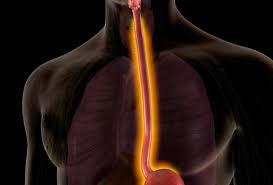 Clearly, the esophagus is more than just a hollow tube for swallowing. Because of the complex nature of the esophagus, there are a number of things that can potentially go wrong. As mentioned above, the sphincters within the esophagus are essential for proper digestion and processing of food. In severe cases of acid reflux, surgery must be performed to tighten the sphincter that separates the esophagus from the stomach. Alternatively, these sphincters can become overly tight or lacks the mobility to properly deliver food to the stomach. In these cases, surgery is required to open up the affected area and facilitate swallowing. Another common situation necessitates surgery of esophagus is cancer.
Clearly, the esophagus is more than just a hollow tube for swallowing. Because of the complex nature of the esophagus, there are a number of things that can potentially go wrong. As mentioned above, the sphincters within the esophagus are essential for proper digestion and processing of food. In severe cases of acid reflux, surgery must be performed to tighten the sphincter that separates the esophagus from the stomach. Alternatively, these sphincters can become overly tight or lacks the mobility to properly deliver food to the stomach. In these cases, surgery is required to open up the affected area and facilitate swallowing. Another common situation necessitates surgery of esophagus is cancer.
As with any cancer, esophageal cancer poses of risk for metastasis, or spreading of cancer throughout the different systems of the body. If cancer has been found in the esophagus and is localized, your surgeon may recommend that some or all of the affected tissue is removed.
Esophageal Surgery Recovery
Of course, the exact length of recovery for esophageal surgery will vary depending on the amount of surgery required. Depending on the specific protocols followed, some esophageal surgeries will only require a few days of recovery before returning home. Other, more involved surgeries may require an extended stay with close observation. Some changes may need to be made in your lifestyle, such as changes in diet and temporary limiting of strenuous activity.
As a general principle, any activity that causes pain in the affected area should be avoided for the first few weeks. Your surgeon will have more specific instructions for you as far as what to expect with your precise procedure, what to do to prepare, and what lifestyle changes may need to be made.
—
Are you in need of esophageal surgery? Get in touch with the best surgeons in NYC to schedule an appointment today.
———
References:
https://surgery.ucsf.edu/conditions–procedures/esophageal-cancer.aspx
https://www.cancer.org/cancer/esophagus-cancer/treating/surgery.html
https://www.ariahealth.org/programs-and-services/surgery/general-surgery/surgery-for-esophagus
Dysphagia Surgery: Steps, Benefits, Side-Effects, Precautions & Prognosis
Dysphagia Surgery
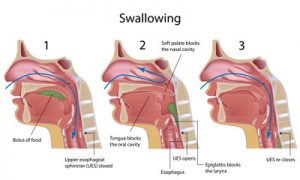 Some functional and anatomical abnormalities of the esophagus or the pharynx can cause dysphagia which is essentially a fancy medical term to indicate difficulty swallowing. This condition can be successfully treated by surgical procedures. Also, surgery is recommended when dysphagia is found to be associated with esophageal carcinoma, and compression of this organ due to other abnormalities or tumors in the chest. The surgical methods presently available are varied, and the choice of medical procedure is decided by the causative condition of dysphagia.
Some functional and anatomical abnormalities of the esophagus or the pharynx can cause dysphagia which is essentially a fancy medical term to indicate difficulty swallowing. This condition can be successfully treated by surgical procedures. Also, surgery is recommended when dysphagia is found to be associated with esophageal carcinoma, and compression of this organ due to other abnormalities or tumors in the chest. The surgical methods presently available are varied, and the choice of medical procedure is decided by the causative condition of dysphagia.
Steps
- The LES or lower esophageal sphincter is dilated in patients with achalasia. The doctor makes the patient swallow a tube having a balloon at its end. It is placed across the LES by means of an X-ray, and then the specialist blows the balloon all on a sudden. The objective is to stretch, rather tear, the sphincter. It can also be useful in treating Schatzki rings and strictures and other anatomical problems associated with
- In esophagomyotomy, the surgeon cuts the LES by making a large incision in the abdomen, or laparoscopically where small punctures are made in the chest or the abdomen of the patient.
Benefits
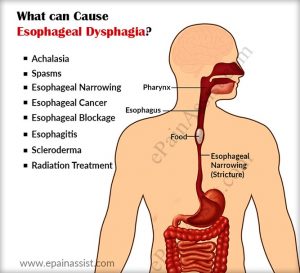 For patients with severe dysphagia disorders, it may be necessary to bypass the pharynx entirely and the oral cavity to provide them with enteral nutrition. Surgical alternatives range from IOC or intermittent oroesophageal catheterization to PEG or percutaneous endoscopic gastronomy. Surgery for chronic cases of aspiration may include the following procedures:
For patients with severe dysphagia disorders, it may be necessary to bypass the pharynx entirely and the oral cavity to provide them with enteral nutrition. Surgical alternatives range from IOC or intermittent oroesophageal catheterization to PEG or percutaneous endoscopic gastronomy. Surgery for chronic cases of aspiration may include the following procedures:
- Medialization: It restores subglottic pressure and glottis closure during the swallow.
- Laryngeal suspension: The larynx is made to be rest in a comparatively protected place under the tongue.
- Laryngeal closure: The medical practitioner may perform it to shut the glottis off, and thus, provide ample protection for the airway while sacrificing the quality of phonation.
- Laryngotracheal separation-diversion: It may be opted to separate the alimentary tract from the airway.
Complications
The most commonly occurring complications are bleeding and perforation of cricopharyngeus. Dysphagia is typically reported after undergoing an ACS surgery, i.e., surgery of the anterior cervical spine. Although risk factors associated with dysphagia are published in the journals, they remain controversial to date.
Precautions
- The healthcare professional may prescribe making an alteration in food/liquid texture, temperature, or consistency.
- It is vital to ingest slowly and take smaller bites.
- The caregiver should also strictly adhere to the promoting strategies to ensure increased safety.
- It is crucial for one to maintain an appropriate positioning at the time of eating, and the ideal manner is to consume any liquid or food while holding an upright position, and also the chink being tucked a little at a right angle.
- An individual should continue to maintain the upright position even after finishing one’s meal, and should not make any attempt to alter the present position for a minimum of forty-five minutes post-consumption of the meals.
- If a person is found to be diagnosed with GERD also, then the head of the patient’s bed should be inclined at an angle of forty-five degrees.
- The care provider should always remember not to give an aspiration patient anything to consume a few hours before the bedtime.
- One should use medications that are meant to promote stomach emptying and reduce the reflux.
Prognosis
It is rather impossible for anyone to predict the outlook or prognosis for dysphagia in general, as numerous medical conditions can be held responsible for the symptoms associated with it. The outlook is case-dependent and is decided by the underlying medical issue/s of a patient.
Conclusion
Although dysphagia can appear to be frightening, this condition is not always necessarily chronic. The family physician should be consulted as soon as one starts experiencing any swallowing difficulties or other GERD (Gastroesophageal reflux disease) symptoms. The latter can be effectively treated with prescription drugs to reduce the amount of stomach acid.
Get in touch with us at 212-988-1136 or schedule an appointment to get immediate care and treatment for the condition.
References
Surgery for Esophageal Cancer – General Surgeon NYC
Esophagus Surgery: Steps, Benefits, Side-Effects, Precautions & Prognosis
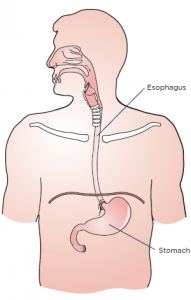
Esophagogastrectomy or esophagus surgery entails doing away with the entire esophagus (and often a stomach part) for treating esophageal cancer, Barrett’s esophagus, achalasia, esophageal stenosis, and GERD. The thoracic surgeon transforms the remaining section of the stomach into a tubular form serving as the replacement for the excised esophagus. The reconstructed esophagus enables the patient to swallow as he or she was doing before the surgery.
Steps
A surgical team comprising of medical specialists and headed by a thoracic or general surgeon performs esophagogastrectomy. The surgical procedure is usually open-type and is carried out in three separate ways.
- Transthoracic esophagectomy (TTE) is conducted via the chest cavity
- Transmittal esophagectomy (THE) is performed by making incisions in the breastbone and the neck’s left side
- En bloc esophagectomy is performed by perforating the abdomen, chest, and neck
Nowadays, the majority of the esophageal surgeries are done using the minimally-invasive laparoscopic procedure where 5-6 fine incisions are made in the abdomen, chest, and neck. The total number of slits (along with their locations) to be made are decided based on the purpose of carrying out the operation and whether the patient has undergone abdominal or thoracic surgeries on previous occasions.
Regardless of the type or method used, the operation is complex thereby necessitating an extended stay in the hospital. If the metastasis is limited to the esophagus and not spread further, excising the gullet and adjacent lymph nodes might help reverse cancer. Alas, most of the cases are detected at an advanced stage compelling the surgeon to go for a compound surgery.
Benefits
Minimally invasive esophagectomy has proven to be more effective compared to open esophagectomy as the postoperative mortality and morbidity rates related to the former are much lower. There are numerous studies to corroborate the outcomes associated with MIE are better than PE. Some of the likely benefits associated with MIE vis-à-vis PE comprise:
- Ashorter period of hospitalization
- Less painful procedure
- Reduced risk of complications or infections
- Less bleeding (and hence fewer transfusions)
- Speedier return to leading a normal life
Side Effects
Some complications related to esophageal surgery are common to other forms of surgery including but not limited to:
- Stroke and heart attack (while the operation is in progress)
- Shortness of breath
- Anastomotic leaking (low blood pressure, vomiting, surgical wound drainage, increased heart rate, and so on)
- Bleeding
- Pulmonary embolism
Complications or risks particularly associated with esophagogastrectomy (which are somewhat rare) include:
- Acute chest infection
- Pulmonary complications, particularly pneumonia
- An injury or wound to the adjacent organs during the operation
- Leakage at the junction of the conjoined stomach and esophagus
Precautions
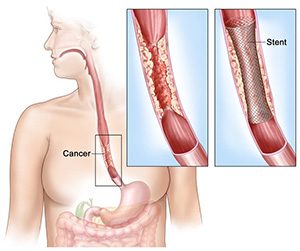
The surgeon who will operate will spell out the risks about the surgery as well as the preparations and precautions you to need to take before, after and during the procedure. You’ll have to quit smoking altogether at least before the surgery and possibly afterward as well. You’ll have to abide by the instructions specified by your surgeon once you’re discharged from the hospital.
The precautions that you’ll need to take will revolve around your diets, medications, clothing, personal accessories, and lifestyle.
Prognosis
The quality of life of most patients improves post-surgery, but some complications linger on. Follow-up care in the form of pain management, lung therapy, psychosocial care, and nutritional evaluations are highly recommended by the medic to keep the complications or risks at bay.
Concluding Remarks
Minimally invasive esophagectomy or esophagogastrectomy is evidentially the best form of surgical treatment for patients with esophageal cancer. If you or somebody close to you has been diagnosed with neoplasm of the esophagus, you can contact us to make an appointment with our general surgeon for a consultation.
References
- https://www.uwhealth.org/healthfacts/surgery/4281.pdf
- https://www.cancer.org/cancer/esophagus-cancer/treating/surgery.html
- https://www.ariahealth.org/programs-and-services/surgery/general-surgery/surgery-for-esophagus
- https://www.cancercenter.com/esophageal-cancer/surgery/
- https://www.healthline.com/health/esophagectomy-open#postsurgery
- https://www.cancercenter.com/esophageal-cancer/da-vinci-surgical-system/
- https://www.ncbi.nlm.nih.gov/pmc/articles/PMC4283863/
- https://www.mayoclinic.org/tests-procedures/esophagectomy/about/pac-20385084
- https://www.uwhealth.org/healthfacts/surgery/4281.pdf
- https://www.urmc.rochester.edu/encyclopedia/content.aspx?contenttypeid=134&contentid=154
















